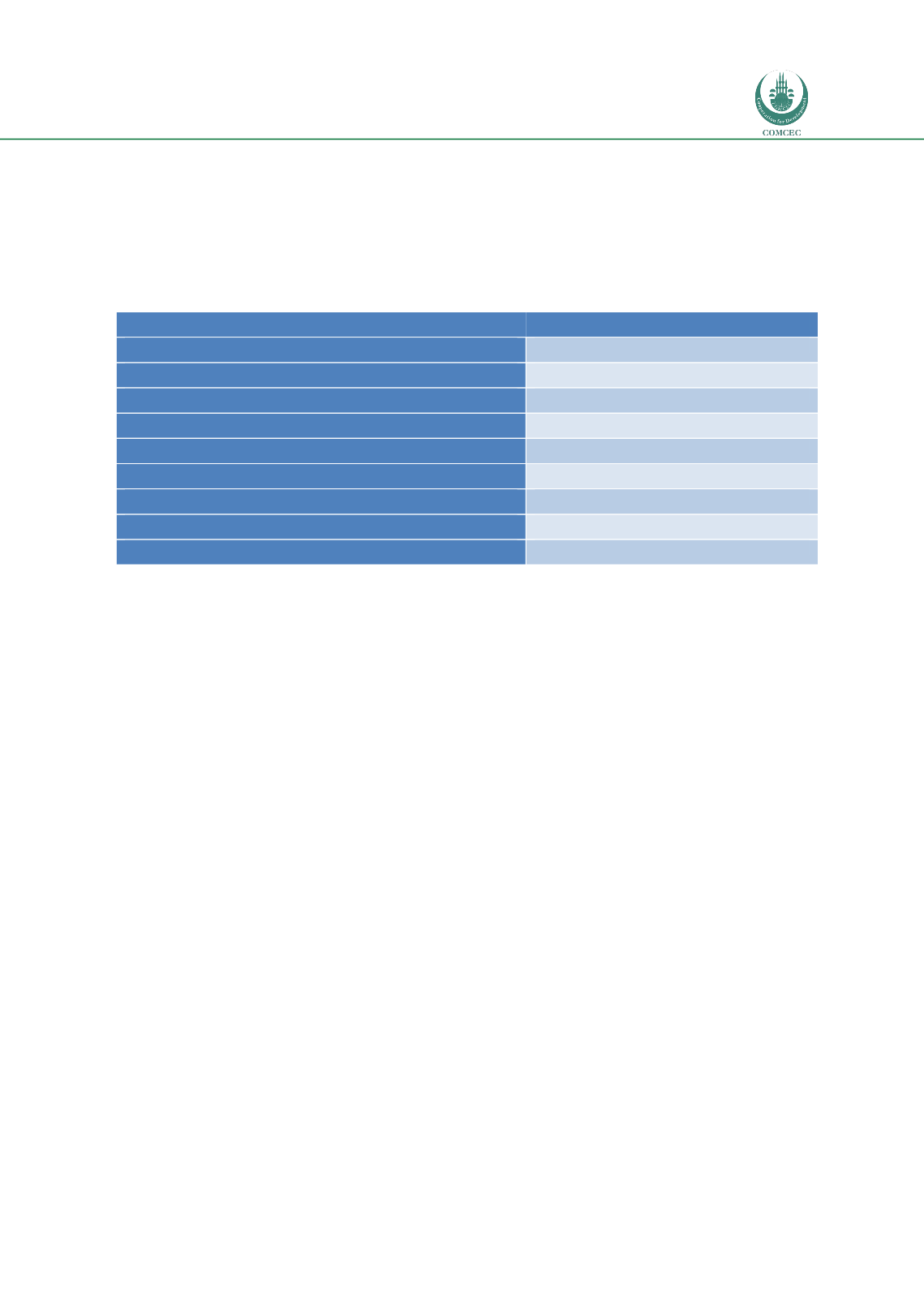

Reducing Postharvest Losses
In the OIC Member Countries
59
Characteristics of the respondents
Not all the respondents gave information about their identity and projects. Out of 68 who
responded, half of them (34) did not answer about their gender or organisation. Among the 34
who answered, there were 7 women and 27 men. Most had more than 10 years’ experience
working in postharvest activities.
Tabledescribes the organisations respondents belonged to.
Table 20: Type of organisation respondents are from
Organisation
Count of responses
Farmers organisation (confederation)
1
International organisation
10
NGO
1
Private consultant
1
Private sector
2
Public body
4
University
13
PhD student in postharvest management and reduction
2
Grand Total
34
A majority were from universities followed by international organisations. Most described that
they had been involved in postharvest research projects on several food commodities. Out of
the 68 respondents, only 59 answered questions. The final number of respondents is 59 and
was split as follows: Cereals (22); Fish and Seafood products (3); Fruits and Vegetables (19);
Meat and Meat products (2); Milk and Dairy products (1); Oilseeds and Pulses (2); Roots and
Tubers (10).
PHL’s are considered important by international organisation and academics, but not by
government, farmers and NGO’s. More awareness raising is needed to change this balance and
drive demand for new knowledge and solutions.
Expertise is strongly clustered around specific commodities: noticeably food grains, where
long-term storage is a particular interest to donors providing food aid assistance, and cassava,
where recent concerns about high losses and perishability has driven new research.
Geographical concentration of interest in PHL’s may reflect the focus of specific aid donors (e.g.
in Uganda) or particular commodities (e.g., cassava in Nigeria). The absence of returns from
the Middle Eastern and Asian clusters of OIC Members shows somewhat limited interest
within these countries in PHLs. This in turn suggests that much progress could be made in
those countries/regions by raising awareness and promoting new research to reveal the
country specific losses and engage the research and policy communities.
3.3.
Cereals
Respondents (22) selected ‘cereals’ as a commodity they have experience in and answered
questions. Flour was the main processed product from cereals (maize, rice, sorghum and
wheat) although some of the products can also be sold as whole grain (i.e. rice). By-products
















